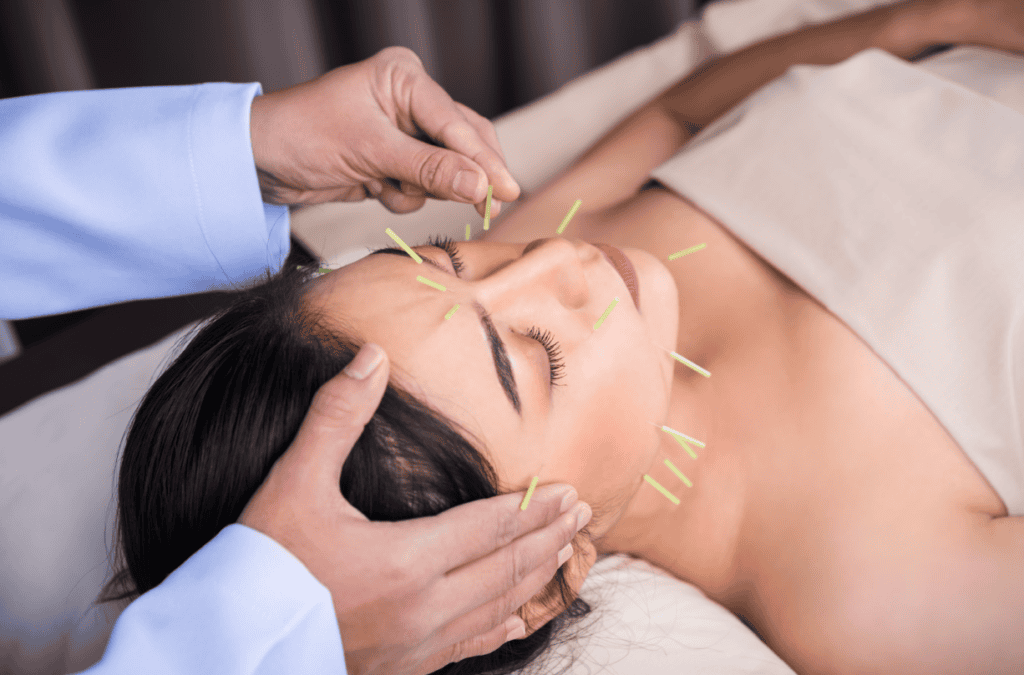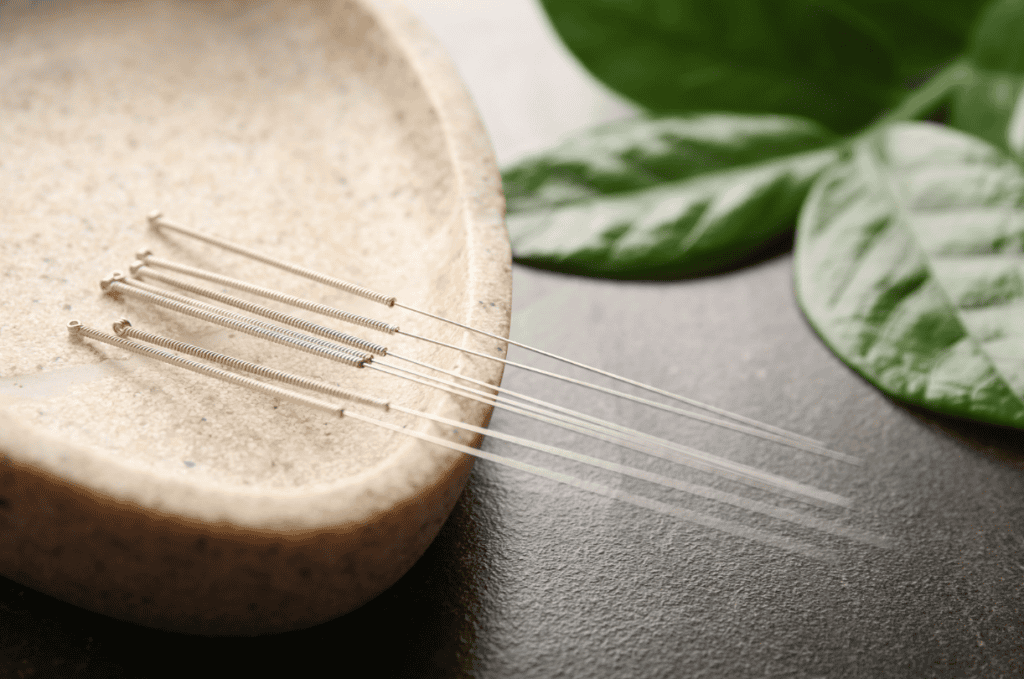Acupuncture is a traditional Chinese medicine practice that involves inserting thin needles into specific points on the body to stimulate healing and promote overall wellness.
This ancient technique is based on the concept of balancing the body’s energy flow, or “Qi,” which is believed to flow through pathways called meridians. By targeting these meridians, acupuncture aims to correct imbalances and enhance the body’s natural healing abilities.
Acupuncture is commonly used to treat various conditions, including chronic pain, headaches, stress, anxiety, digestive issues, and more. The treatment can help reduce inflammation, improve circulation, and alleviate pain by stimulating the body’s nervous system and releasing natural pain-relieving chemicals like endorphins.
Modern research supports the efficacy of acupuncture for certain conditions, making it a popular complementary therapy. Sessions typically involve a thorough assessment of the patient’s health, followed by the insertion of needles at strategic points on the body. The procedure is generally painless and can induce a state of relaxation.
For those interested in exploring the benefits of acupuncture, visiting a reputable clinic like Kuna Wellness and Acupuncture at https://www.kunawellnessacupuncture.com/ can provide professional and personalized care tailored to individual health needs.

What is Acupuncture and What Conditions Can It Treat?
Acupuncture is a versatile treatment used to address a wide range of health conditions by stimulating specific points on the body to promote healing and balance. Here are some common conditions that acupuncture can effectively treat:
- Chronic Pain: Acupuncture is widely recognized for its ability to reduce chronic pain, including back pain, neck pain, osteoarthritis, and migraines. By stimulating nerves and releasing natural painkillers like endorphins, acupuncture helps alleviate pain and improve overall function.
- Headaches and Migraines: Regular acupuncture treatments can reduce the frequency and severity of tension headaches and migraines. It helps by relaxing muscle tension and improving blood flow.
- Stress and Anxiety: Acupuncture can effectively manage stress and anxiety by promoting relaxation and balancing the body’s energy. It influences the release of neurotransmitters and hormones that regulate mood.
- Insomnia: For those struggling with sleep issues, acupuncture can help improve sleep quality and duration by calming the nervous system and promoting relaxation.
- Digestive Issues: Conditions like irritable bowel syndrome (IBS), acid reflux, and constipation can be alleviated with acupuncture by stimulating the digestive system and improving its function.
- Allergies: Acupuncture can help reduce symptoms of allergies by modulating the immune response and reducing inflammation.
- Women’s Health: Acupuncture is often used to treat menstrual pain, menopausal symptoms, and infertility by regulating hormonal balance and improving reproductive health.
Acupuncture Considerations and Side Effects
Acupuncture is generally considered safe when performed by a trained and licensed practitioner, but it’s important to be aware of potential side effects and considerations.
Side Effects:
- Mild Discomfort: Some patients may experience slight discomfort, soreness, or bruising at the needle insertion sites. These symptoms are typically mild and temporary.
- Fatigue: It is common to feel tired or lethargic after an acupuncture session. This usually resolves quickly and is a sign that your body is responding to the treatment.
- Dizziness: Some individuals may feel dizzy or lightheaded during or after treatment. Ensuring you eat a light meal before your session can help prevent this.
- Minor Bleeding: Minor bleeding or light bruising at the needle sites can occur, but it is usually minimal and short-lived.

Considerations:
- Qualified Practitioner: Always ensure your acupuncturist is certified and licensed to practice. This ensures the treatment is performed safely and effectively.
- Health Conditions: Inform your acupuncturist of any existing health conditions, medications, or concerns before starting treatment. This includes bleeding disorders or if you are using blood thinners, as acupuncture involves needles.
- Pregnancy: Pregnant women should inform their practitioner, as some acupuncture points are contraindicated during pregnancy.
- Post-Treatment Care: Following the treatment, it’s advisable to rest and stay hydrated to help your body adjust and optimize the benefits of the session.
For those considering acupuncture, consulting with a reputable clinic like Kuna Wellness and Acupuncture can ensure a safe and beneficial experience tailored to your health needs.


